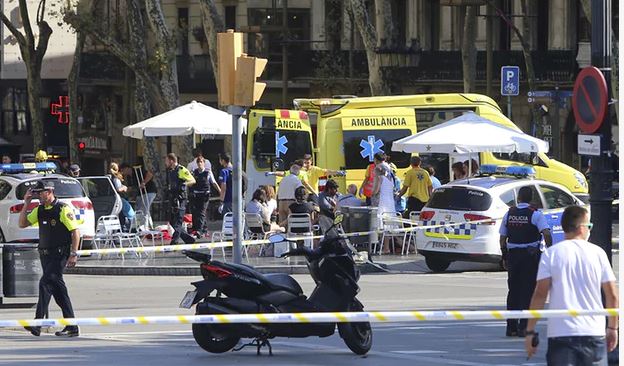Air strikes resumed on Sunday in a rebel-held valley near Damascus containing the Syrian capital’s main water supply, a day after insurgents and the government failed to agree a plan to repair the springs knocked out of service two weeks ago.
The government and allied fighters from the Lebanese group Hezbollah launched an offensive two weeks ago to take back Wadi Barada, a mountainous valley overlooked by pro-government military positions where springs provided water to four million people in the capital.
The government says it wants to enter the rugged valley to permanently secure water supply to the capital. Rebels and local activists say pro-government forces are using the water issue to score a political victory weeks after the fall of Aleppo city, using siege and bombardment to force fighters into agreeing to leave.
Through a series of so-called settlement agreements, sieges and army offensives, the Syrian government, backed by Russian air power and Iran-backed militias, has been steadily suppressing armed opposition around the capital.
The Syrian Observatory for Human Rights said air strikes began on Sunday morning, after a lull since Saturday morning during which a new round of negotiations over repairs took place.
A military media unit run by the Syrian government’s ally Hezbollah said on Sunday it was suspending a ceasefire in the Wadi Barada area because rebels were disrupting negotiations and had opened fire on repair teams.
The Wadi Barada media office, run by local activists connected to the negotiating team, said it was untrue that any repair team had entered the valley, saying engineers had waited at the area’s border while negotiations went on.
The Hezbollah-affiliated media unit also said it was the Syrian Islamist militia formerly called the Nusra Front which fired on the teams. The Syrian government has said Nusra Front, now called Jabhat Fateh al-Sham, and Islamic State were excluded from a nationwide ceasefire which came into force 10 days ago.
The Wadi Barada media office denied the Nusra fighters were present in the valley.
WATER FIGHT
Rebels in Wadi Barada have allowed government engineers to maintain and operate the valley’s pumping station, which supplies 70 percent of Damascus and its surroundings, since they took control of the area in 2012.
Fighters have, however, cut water supplies several times in the past to put pressure on the army not to overrun the area.
The United Nations said the spring was damaged two weeks ago because “infrastructure was deliberately targeted”, without saying who was responsible, and warned shortages in the capital could lead to waterborne disease outbreaks.
Rebels and activists say the spring was damaged by pro-government force bombardment. The government said rebels polluted the spring with diesel, forcing the state to cut supplies.
Ali Haidar, who as national reconciliation minister has been responsible for negotiating local truce deals which see rebels given safe passage out of areas which the government then moves into, told Sham radio station on Saturday the spring would remain under state control after repairs, “to prevent water again being cut to the capital”.
A U.N. spokesman said this week sabotaging civilian water supplies constituted a war crime.
Activists in the valley warned on Saturday of deteriorating humanitarian conditions in the mountainous valley, which they say has a population of 50,000 of local people and 30,000 internally displaced Syrians.
The United Nations estimates 45,000 people live in the Wadi Barada area, and thinks at least 7,000 people have been displaced form the area in recent fighting.
Click here to see the latest Latest Recruitment in Nigeria.











